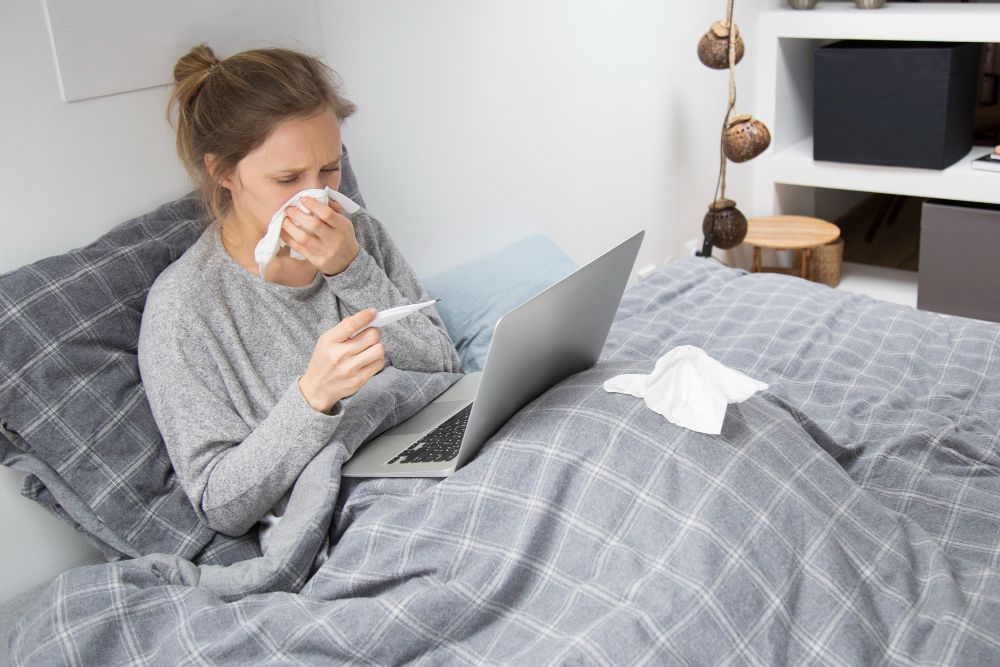Morning stuffy nose, characterized by nasal congestion, difficulty breathing through the nose, and a feeling of pressure or fullness in the nasal passages, can be both uncomfortable and disruptive to daily routines. Several factors contribute to morning nasal congestion, including allergies, sinusitis, dry air, environmental irritants, and certain sleeping positions. Understanding the causes and symptoms of morning stuffy nose is the first step toward finding effective relief strategies and improving overall nasal health.
Hydration is Key
Dry air can exacerbate nasal congestion and lead to morning stuffy nose symptoms. Maintaining optimal humidity levels in the bedroom can help alleviate congestion and promote easier breathing throughout the night. Using a humidifier, especially during the winter months or in dry climates, can add moisture to the air and prevent nasal passages from drying out. Additionally, staying hydrated by drinking plenty of water throughout the day can help keep nasal secretions thin and prevent them from becoming thick and sticky, which can contribute to congestion.
Clearing Nasal Passages
Nasal irrigation, also known as nasal rinsing or nasal douche, is a technique used to flush out excess mucus and allergens from the nasal passages, providing relief from congestion and improving nasal breathing. Using a saline solution, either in the form of a premade nasal spray or a homemade saline solution, nasal irrigation can help clear nasal passages and alleviate morning stuffy nose symptoms. It’s essential to use distilled or boiled water to prevent introducing harmful bacteria or irritants into the nasal passages.
Minimizing Triggers
Allergens and environmental irritants can exacerbate nasal congestion and trigger morning stuffy nose symptoms. Identifying and avoiding common allergens such as dust mites, pet dander, pollen, and mold can help reduce nasal inflammation and congestion. Keep bedroom windows closed during high pollen seasons, use allergen-proof pillowcases and mattress covers, and regularly clean bedding to minimize exposure to allergens. Additionally, avoiding tobacco smoke, strong odors, and other environmental irritants can help prevent nasal irritation and congestion.
Promoting Drainage
Sleeping with the head elevated can help promote sinus drainage and reduce morning stuffy nose symptoms. Using extra pillows or a wedge pillow to elevate the head and upper body can prevent mucus from pooling in the nasal passages and sinus cavities, allowing it to drain more easily. This can alleviate congestion and improve nasal breathing during sleep, leading to fewer morning nasal symptoms. Experiment with different sleeping positions to find the most comfortable and effective elevation angle for optimal drainage.
Temporary Relief Options
Nasal sprays or decongestants can provide temporary relief from morning stuffy nose symptoms by constricting blood vessels in the nasal passages and reducing swelling. However, it’s essential to use these medications sparingly and according to the manufacturer’s instructions, as overuse can lead to rebound congestion and worsen symptoms over time. Saline nasal sprays are a milder alternative that can help moisturize nasal passages and clear mucus without the risk of rebound congestion.
Consulting a Healthcare Provider
If morning stuffy nose symptoms persist or worsen despite home remedies and lifestyle modifications, it’s essential to seek professional advice from a healthcare provider. A doctor can help identify the underlying cause of nasal congestion and recommend appropriate treatment options, such as prescription medications, allergy testing, or nasal corticosteroids. In some cases, chronic sinusitis or other underlying conditions may require further evaluation and specialized care to effectively manage symptoms and improve nasal health.
A Breath of Fresh Air
In conclusion, morning stuffy nose can be a bothersome issue that affects daily comfort and quality of life. By understanding the causes and symptoms of nasal congestion and implementing effective prevention and relief strategies, individuals can minimize morning stuffy nose symptoms and enjoy clearer breathing throughout the day. From maintaining optimal humidity levels and practicing nasal irrigation to avoiding allergens and seeking professional advice when needed, there are many ways to combat morning nasal congestion and promote nasal health.



